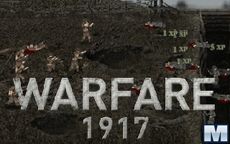

Never is that tension more clear than in the film’s conclusive action setpiece, which is tasked with giving viewers a happy ending in a conflict that offered few uncomplicated victories.ġ917 follows two British soldiers, Blake (Dean-Charles Chapman) and Schofield ( George MacKay), who are handed the perilous task of traversing no-man’s-land to deliver a message to another regiment calling off their attack. This is a story about integrity, the willingness to do anything even in the harshest conditions.” Mendes has spoken of the film as a tribute to those who made it back home, which requires him to pull off the tonal balancing act of reclaiming the war as an arena for nobility and sacrifice, while not glorifying the conflict itself. “Other people have made that movie, the blood and guts,” the movie’s Oscar-nominated production designer Dennis Gassner told me earlier this month. The director based his film on the memories of his grandfather, who served as a messenger on the Western Front, and that family connection seems to have left him determined to present a version of the war where an individual soldier could still act heroically, rather than simply be a lamb for the slaughter. Into this fraught landscape steps Sam Mendes’s 1917, which is trying to accomplish that rarest of feats: telling a feel-good World War I story. With the Great War recently celebrating its centenary, projects like Peter Jackson’s They Shall Not Grow Old have attempted to sidestep these historical debates by concentrating solely on the day-to-day experiences of the men in the trenches, avoiding making any wider claims about what, if anything, the war itself meant. However, this view has come in for reappraisal as military historians like Brian Bond argue that, contrary to popular belief, the war as a whole was “necessary and successful” (though that wider lens in turn has been critiqued for erasing the experience of those who actually served). These depressing depictions are in keeping with what became the dominant historical narrative of the First World War in Britain and the U.S., which painted the troops on the ground as victims of their own generals, idiots who senselessly sent their men into a meat grinder.
Warfare 1917 last stand movie#
In other words, if you’re making a World War I movie that doesn’t end with your heroes dead or grievously wounded, you’d better have a good explanation.

Even Wonder Woman barely makes it five feet before being struck by a German bullet that would have been fatal for a non-superhero: More recently, Steven Spielberg’s War Horse gave us both a doomed cavalry charge and a doomed infantry charge. Or the heartbreaking conclusion to Peter Weir’s Gallipoli, which follows Australian troops in the war’s Middle Eastern theater: Think of the famous ending of the BBC’s Blackadder Goes Forth, in which Rowan Atkinson and company go over the top, their grim fates elided with a dissolve to a field of poppies: When they do show up onscreen, World War I battles traditionally share a similar pattern: Our heroes climb out a trench, run a pitifully short distance, then get machine-gunned to death. What grabs modern audiences about the conflict is either the gross stuff - Dan Carlin’s Hardcore Histories podcast dives deep into the disgusting sights, smells, and sensations of the Western Front - or the sense of grand tragedy. (For the British, it occupies a more prominent place in the collective historical memory.) We remember World War I as a military stalemate that exemplified the utter meaninglessness of war, and while the day-to-day drudgery and existential despair of life in the trenches inspired plenty of lasting poetry and literature, it doesn’t necessarily lend itself to blockbusters. Its predecessor has proven a tougher subject for movies to crack, especially American ones. Cinematically, World War II has everything: dramatic battles, dastardly villains, a pivotal role played by the United States, and ultimately, a resounding victory for the good guys.

When it comes to 20th-century military conflicts, there’s no question which one Hollywood prefers. It’s a typical World War I battle scene, but flipped 90 degrees.


 0 kommentar(er)
0 kommentar(er)
